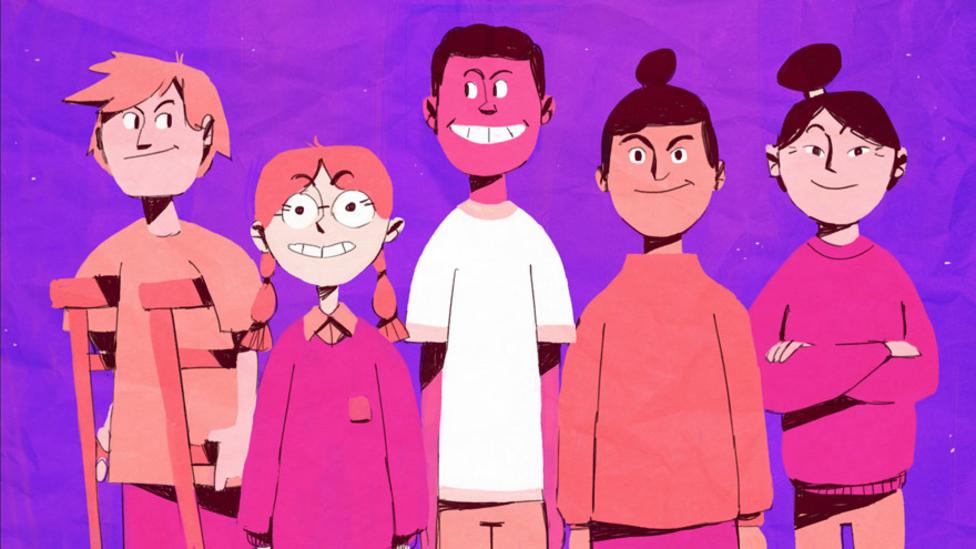Help me out - different is good!
Find out more about being unique.

We are all different - and thatās a good thing!
The world would be a really boring place if we were all the same. However, being confident about who you are, and accepting other people for who they are, can take time and practice. Here are a few tips on why being different is good!
Individuality
We all have different hair and skin colour, we have different accents and abilities. Some people are born with, or develop disabilities, which mean they have to do things in a different way. Itās really important to remember that everyone has strengths and weaknesses and thatās OK. Nobodyās good at everything. But understanding that everyone has something to offer the world is key to accepting difference in ourselves and in other people.
Why am I different?
It would be great if everyone felt okay with who they were, but unfortunately lots of us struggle to do that. Sometimes itās tough when the smallest thing can make you feel ādifferentā in a bad way. Try these tips to be kinder to yourself and to build confidence -Ā
Think about the things youāre good at and focus on those. You might be great at music or singing, you might have a good sense of humour or have top maths skills.
Be proud of who you are ā most successful people have a strong sense of individuality ā and their individuality is what makes them different!
Donāt let nasty comments get inside your head, itās hard, but being confident in yourself means worrying less about what other people think and being kind and supportive to yourself.
Chavala talks about being different
What is prejudice?
Prejudice is when you dislike or judge someone because they are different. Maybe they have a mental health problem or disability, or have a different religion, skin colour or accent. People are often prejudiced because they donāt really understand much about that other person. For example, perhaps a person without a disability doesnāt understand or feels afraid of what itās like to have one. When theyāre afraid they might forget that the person with the disability has the same thoughts and worries as they do; only they just might not look or talk the same way. Itās never OK to treat people with disabilities unfairly or to bully them.
If you see prejudice happening:
Donāt participate in it, and donāt tolerate it among your friends. Set a good example.
Avoid getting into an argument and tell an adult as soon as possible. If itās safe then make sure the targeted person is OK.
Show support for that person and try to reach out to them, be friendly and try and include them.
Speak to your school about it, they may be able to help by holding an assembly on living with disability or a campaign to stop bullying.
Finally, if youāre being targeted itās really important to speak to a trusted adult about whatās happening to you, itās hard to deal with prejudice on your own.
For information about organisations which can offer more advice on a range of issues, check out the advice helplines page.
You can also find out what makes the Lifebabblers different.